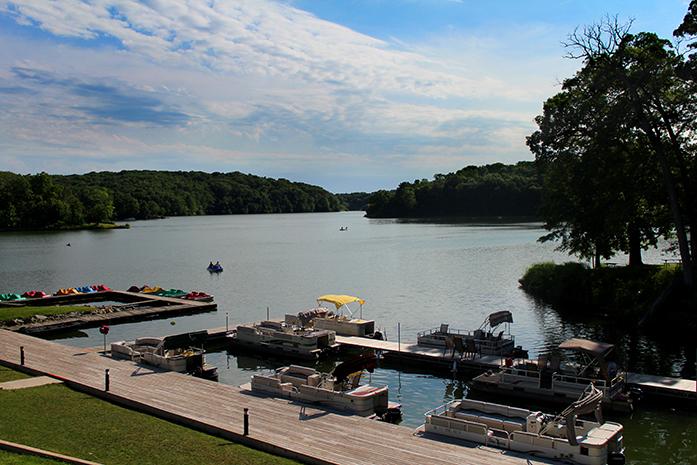A state agency considers turning beaches at Lake Macbride and Pleasant Creek State Park dry.
By Zach Weigel
Beach-fans hoping to kick back and relax with a cold one in hand at Lake Macbride soon will no longer be able to do so.
The Iowa Department of Natural Resources Commission approved a Notice of Intended Action after a 6-0 vote on June 9 to move forward in banning alcohol on the beach at Lake Macbride State Park, near Solon, a popular summer destination in eastern Iowa.
Natural Resources public-information officer Kevin Baskins said the notice imposes “a targeted approach limiting the ban to only the beaches where there was a problem.”
According to the report, “Department citation records and incident reporters indicate alcohol consumption at these particular locations are presenting legitimate safety risks to the public and department personnel.”
The statement cites a troubling number of recorded assaults, public intoxication, littering, disorderly conduct, possession under the legal age, and interference with official acts as common offenses.
“Banning alcohol from these beaches will reduce considerably the number of arrests and citations at these beaches and increase the safety and enjoyment of park users in these areas,” the notice said.
Although evidence points to the legitimacy of an alcohol ban, the ban will not be placed until next year.
“The commission’s recent action is only the start, so for all intents and purposes, a final rule really wouldn’t be in effect until next year’s recreational season,” Baskins said.
He noted that the notice effectively allows Natural Resources to start the rule-making process.
“There is a disproportionate number of incidents and arrests at our beaches compared to other [Natural Resources]-managed state parks across Iowa,” said Lake Macbride park manager Ron Puettmann.
Natural Resources data suggest that from 2010-15, there have been 221 incidents involving alcohol at the Lake Macbride’s beach. No other state park in Iowa has recorded more than 100.
Last year, the Lake Macbride State Park implemented a 6 p.m. curfew for the beach area. However, Natural Resources stated, “The early closing time has been very unpopular with park users [and] is not a sustainable practice.”
Puettmann said many people often come to the beach after they get off work or to camp overnight with friends, and the early closing time adversely affects them.
Estimated visitation numbers are near 500,000 people on average every summer, in addition to 20,000 campers. At times, the ratio of park users to personnel is in excess of 500:1, putting strain on resources and compromising safety.
UI graduate Cassidy Watson said she thinks a ban on alcohol could mean to a friendlier and safer environment.
“I think it would make the beach more enjoyable because it wouldn’t get out of control,” Watson said. “It would be a more relaxing experience, and families wouldn’t have to worry about bringing their children.”
Natural Resource’s report also states that with a ban on alcohol at Lake Macbride, department staff will able to focus less on the beach and more on the park as a whole.
“We hope that an alcohol ban will create a safer and more enjoyable atmosphere for our customers and families, ” Puettmann said. “There is always potential for a new rule to cause decreased business; however, in my experience, these types of fluctuations are short-term.”



